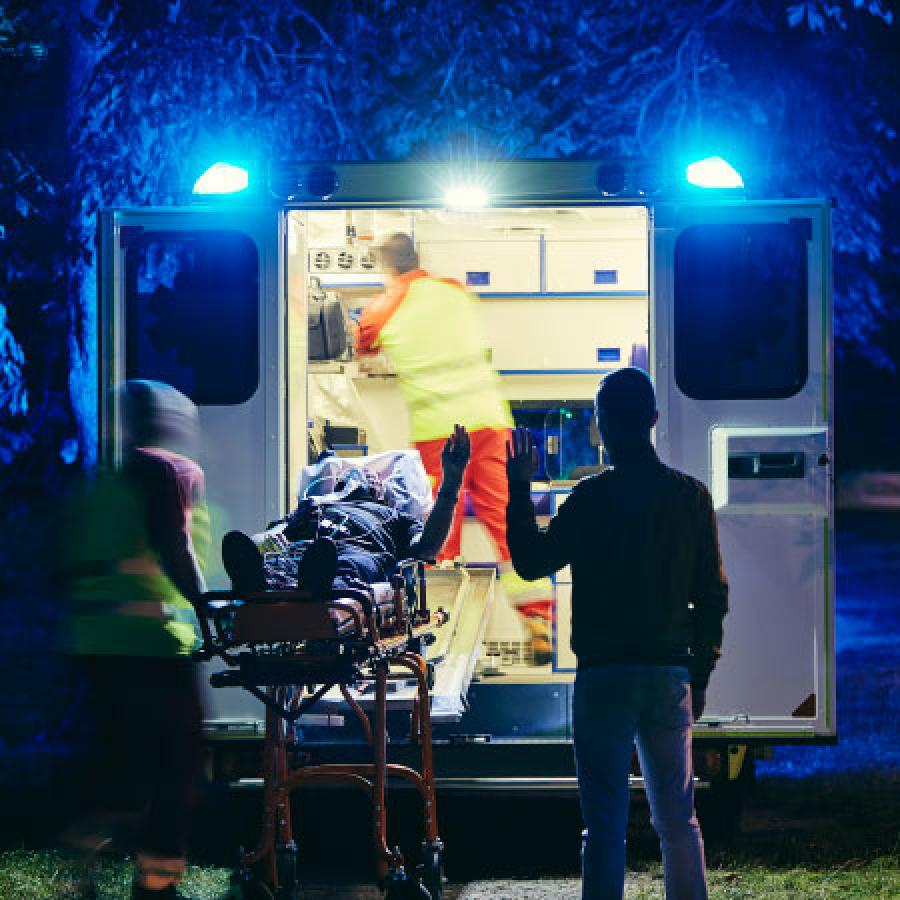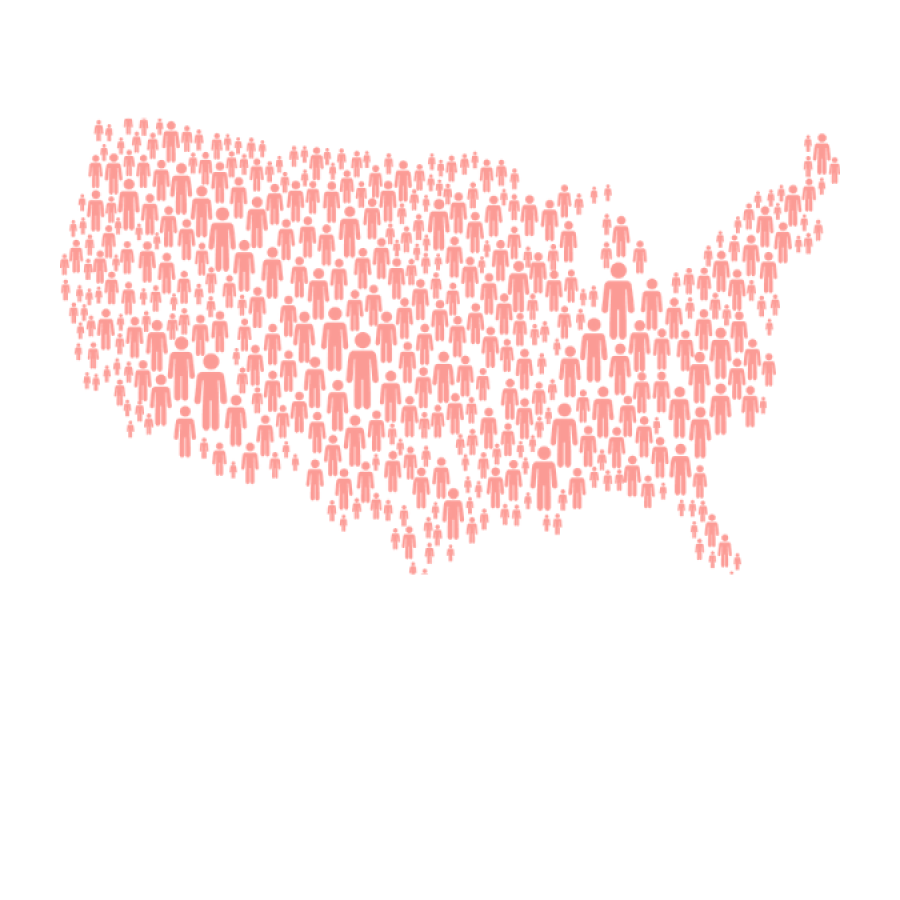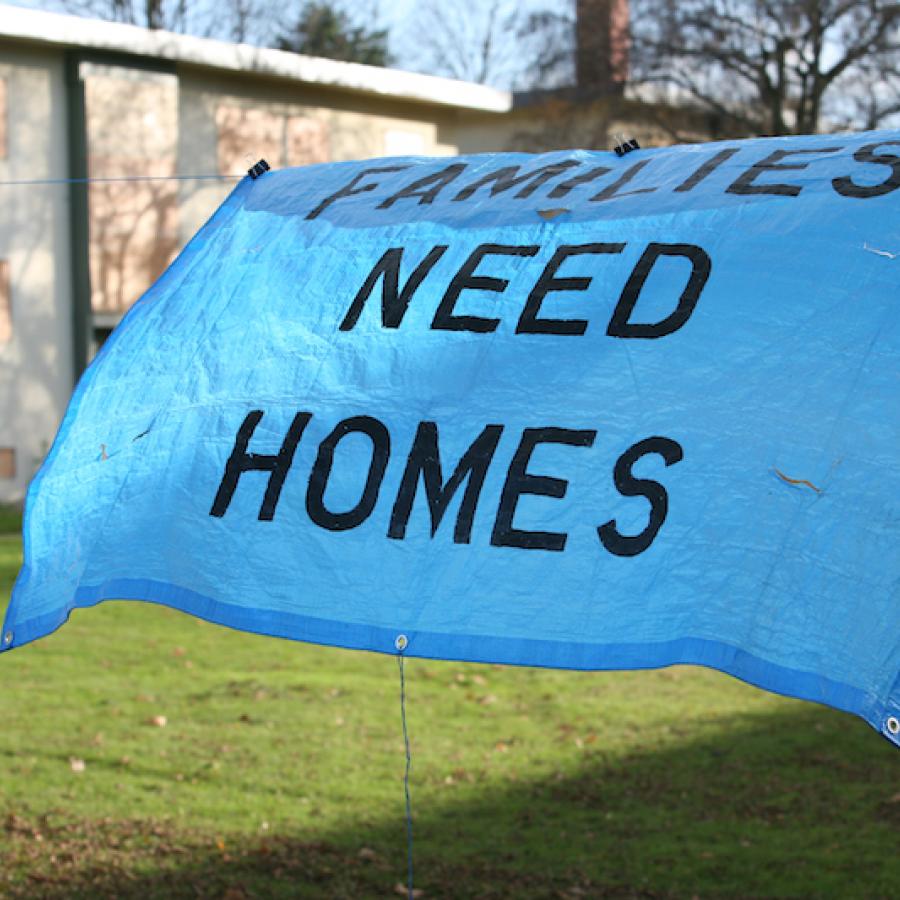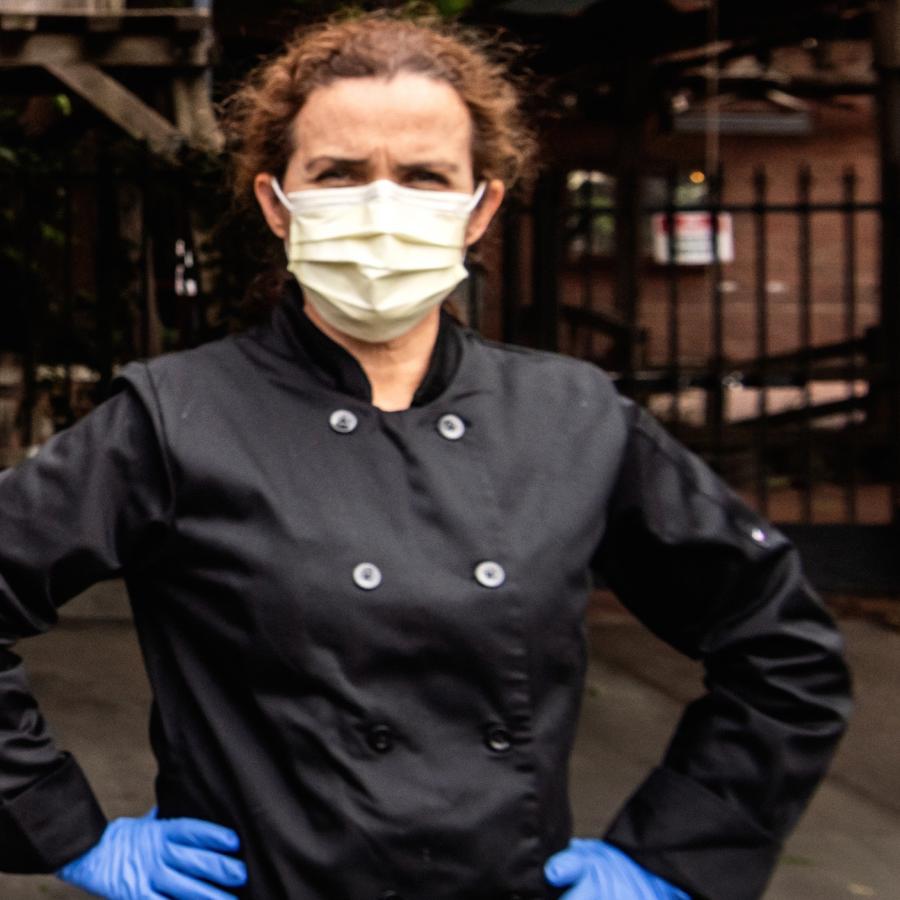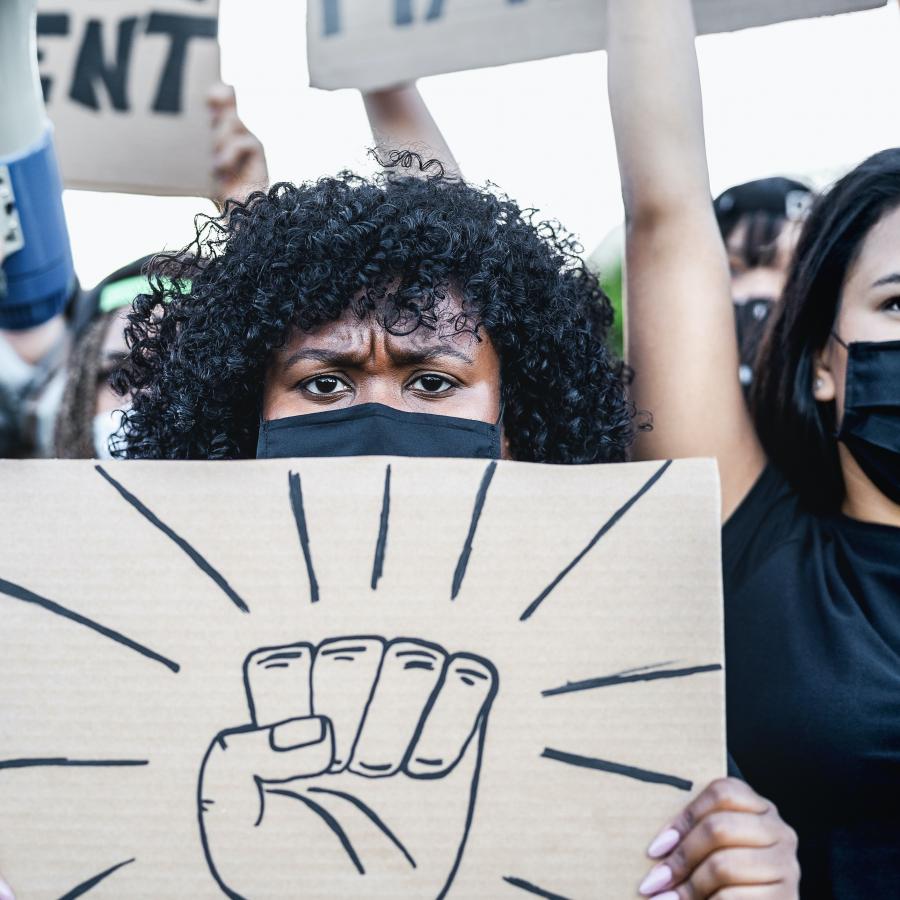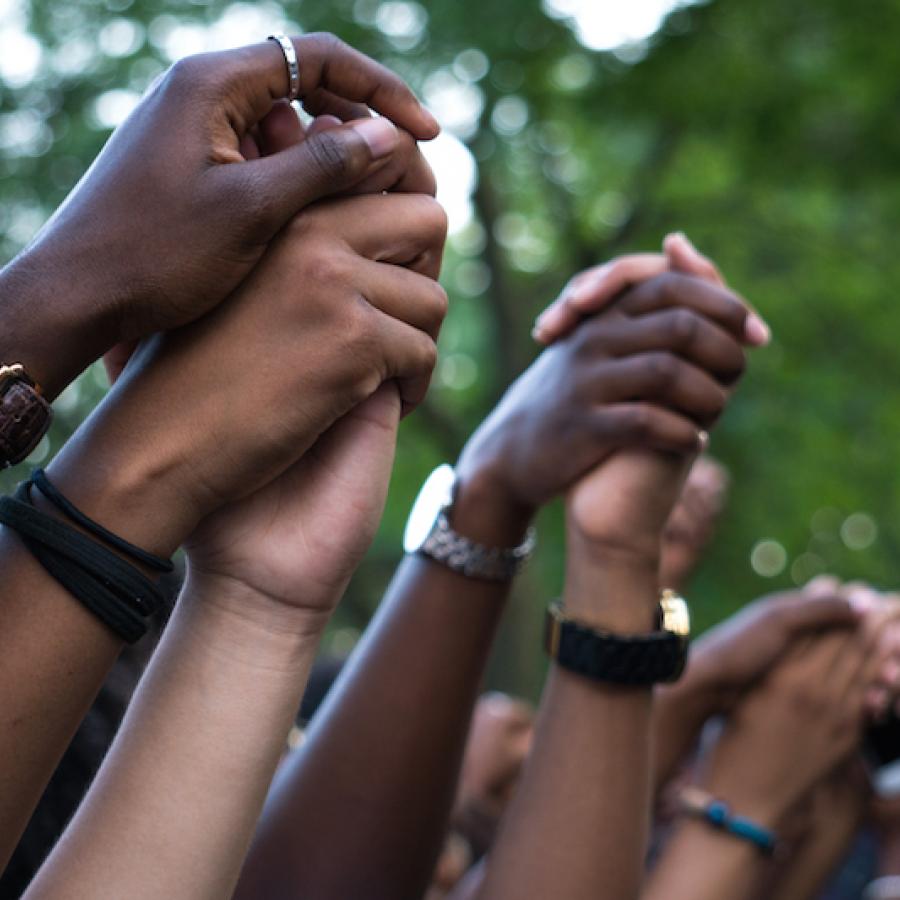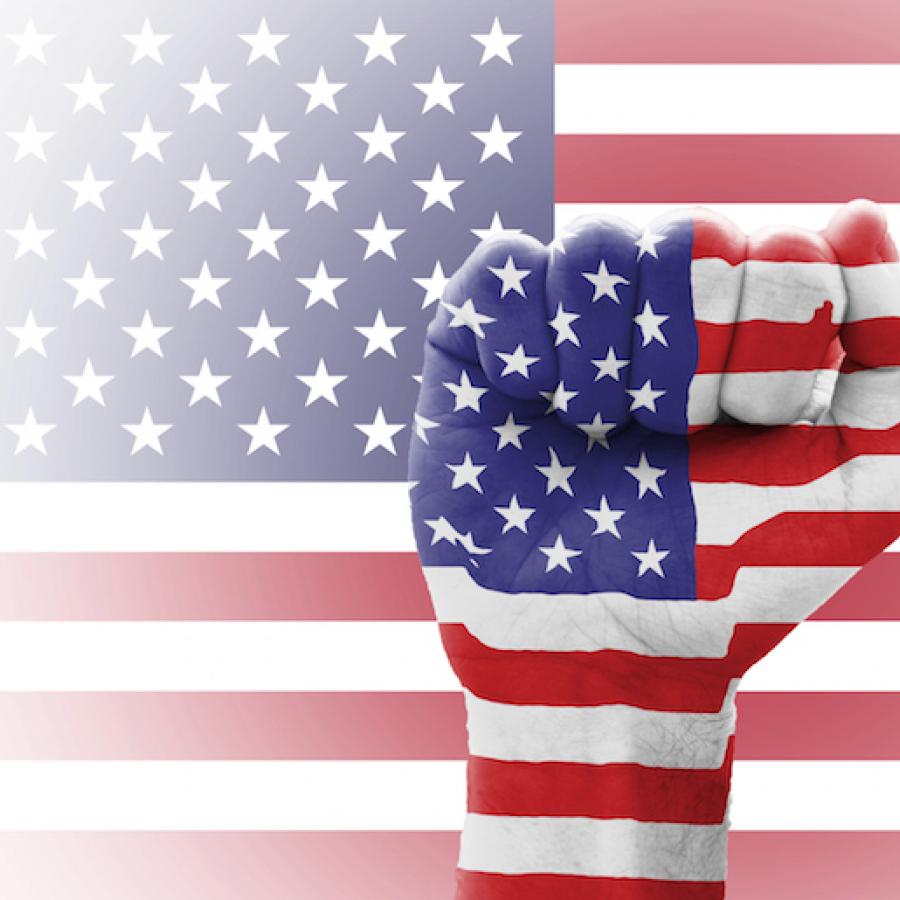This week’s COVID-19 and Race Commentary explores why the nationwide uprising for racial justice could bring big, lasting change, how racism harms health, and why building Black-owned businesses is key to an equitable recovery.
Issue 10, June 17, 2020
Beginning America’s Next Story
By Angela Glover Blackwell
Having been an advocate for racial justice for nearly 50 years, I am not surprised that people are asking me whether this moment is different. Is it going to lead to big, lasting change?
My answer: This feels like a seismic shift, and the beginning of America’s next story.
I grew up during the Civil Rights movement and graduated from college into the Black Power movement. Over the years, I’ve litigated to fight employment discrimination, protect consumer rights, and reform police. Alongside brilliant, dedicated Black residents and leaders, I worked to reduce Black infant mortality and bring grocery stores and investments to neglected Black neighborhoods. In solidarity with thousands of visionary activists, I’ve fought to obtain, protect, and defend our rights while unapologetically demanding racial equity — just and fair inclusion into a society where all can participate, prosper, and reach their full potential.
I can recognize a big moment for change when I see one. This looks like the real thing.
This uprising signals something different from the marches and goals of the Civil Rights movement. That movement saw America as a place of opportunity, and believed that things would get better for Black people if the system would just eliminate discriminatory laws that locked us out of participating in everything from voting to jobs to public accommodations.
The Black Power movement believed that protesting segregation was not enough to remedy generations of structural racism. The proponents had a biting critique of capitalism and a deep love of Black culture and people. Black Power prioritized building Black economic and political might over integration into White society.
In the end, neither movement fundamentally improved outcomes for the majority of Black Americans. The Civil Rights movement underestimated the power of racism to survive and even thrive after discriminatory laws were removed. The Black Power movement underestimated the degree of police violence it would confront and the impact of FBI infiltration on its credibility. It also underestimated the willingness of White America to abandon cities and set up race-based enclaves in surrounding areas, while simultaneously sucking the resources, infrastructure, and political clout out of urban centers where Black people were beginning to amass power.
But today, the circumstances, the demands, and especially the capacities are different. There’s a growing consensus that something is fundamentally wrong in America, tied to racism and exclusion. A recent poll found that 76 percent of Americans consider racism and discrimination a “big problem,” up 26 points from 2015. This is a remarkable change in just a few years.
This shift in perception is due to the savvy and uncompromising Movement for Black Lives and its courageous leaders. It also reflects the growing number of Black elected, civic, labor, government, and business leaders, as well as Black researchers, artists, and foundation executives who are increasingly using their Black power and platforms to call out structural racism, build solidarity with others who are feeling the full brunt of systemic exclusion, and call for bold change.
We may also be witnessing a turning point for the White community. Not only are thousands of young White people joining protests in every region of the country, White business leaders, elected officials, scholars, and pundits are all rushing to show their support for those in the streets. They are calling out racism and admitting to their complicity in advancing it and ignoring it. They are also putting money and resources on the table to finally defeat racism.
And now this new movement is demanding transformation.
Americans have been watching the brutalization of Black bodies since before the founding of the country but somehow managed to deny the reality of what they had seen. The videotaped beating of Rodney King made police violence against Black people undeniable, but the videotaped murder of George Floyd has rendered it unacceptable. The righteous indignation of multiracial, multiethnic, multigenerational protesters is forcing the nation to wrestle with the ghosts of the past and the role that policing has played in institutionalizing brutality against Black people. As a result, we are now talking about defunding the police and reimagining community safety, instead of settling for minor reforms.
But it’s not only about law enforcement. George Floyd was killed in the midst of the COVID-19 pandemic, in which Black Americans are 3.5 times more likely to die of the virus than Whites, and Latinx Americans are twice as likely to die. This is a result of longstanding structural racism in health-care access, housing, education, and the economy. As of April, less than half of the adult Black population was employed. And people of color with jobs were more likely to be frontline industry workers with the greatest exposure to the coronavirus.
As the world enters a deep economic recession, young people (and not just young people of color) are facing both inequality and extreme uncertainty. They wonder if they will ever have a good job, be able to buy a house, or save money for retirement. Young people of color had the highest unemployment rates before COVID-19, according to the US Department of Labor, and have even fewer job options now. As with prior social movements, youth are a driving force in this uprising and they aren’t interested in compromise. They want economic transformation and reject the current toxic inequality that favors the wealthy while limiting equitable opportunities, ravaging the planet, and throwing the most vulnerable people to the bottom of the economic pile.
It’s exhilarating to see this diverse movement centering Black people and standing up for transformative change. Let’s revel in this moment but remember that we won’t achieve lasting impact unless we continue to do the work. We must reach into our radical imaginations and bring forth a compelling vision for the nation we need and deserve. We must vote and keep raising awareness, organizing, demanding change, using our power, building our movement, expanding our ranks, and moving forward.
Do the work and it will be different this time.
Angela Glover Blackwell is Founder in Residence at PolicyLink and host of the podcast Radical Imagination.
News, Analysis, and Commentary, Curated From Around the Web
The Poor People's Campaign: A National Call for Moral Revival is building a broad and deep national moral fusion movement—rooted in the leadership of poor people—to unite the country from the bottom up. From policing and militarism to voting rights, workers' rights, welfare, health care, education, indgeous sovereignty, water and environment, the demands of this Campaign present a comprehensive, transformative political and moral agenda for this nation -- including recent demands around COVID-19 and systemic racism. Rise up and be a part of the digital justice campaign on June 20.
Amid a nationwide uprising for racial justice, Black and Latinx communities are bracing for another crisis: a wave of evictions when a federal moratorium expires in July, Politico reports. Nearly 26 million people will have trouble covering rent by September, estimates the COVID-19 Eviction Defense Project cited in Politico. People of color are especially vulnerable — they are twice as likely to rent as White people, and they have been harder hit by the pandemic’s economic fallout.
Latinx homeowners also are struggling: one in five have been late on mortgage payments in the past three months, Brookings reports, putting them in danger of losing their homes when the pause on federally backed mortgages expires. Meanwhile, the federal boost to unemployment benefits, which tens of millions of laid-off workers have relied on to survive — is also set to end next month. Unless the federal government acts soon and expansively — and there are no signs it will — the nation’s current economic plunge, and its devastating impact on people of color, is just a taste of the ruinous collapse to come in late summer, Buzzfeed writes.
Although they have jobs — and although the public cheers them as heroes — millions of essential workers are barely getting by, the Center for American Progress reports. By one estimate, at least 13 million of the workers we now hail with gratitude — disproportionately people of color and immigrants — earned less than $15 an hour in 2018, and 5.5 million relied on the Supplemental Nutrition Assistance Program (SNAP). The Center is calling on Congress to strengthen SNAP benefits. At an average of $1.40 per meal per person, the benefits often don’t last the month but they are a lifeline at a moment when hunger is surging. Work in Progress, the blog of Dropbox, takes a nuanced look at the essential workforce and finds industry-specific challenges that the media have largely overlooked. For example, many restaurant and food service workers have been forced to pivot to delivery jobs, while many laid-off retail workers must look to other industries entirely. And although doctors often come to mind when we talk about health-care frontline workers, most of them aren’t physicians and don’t earn doctor salaries: four in 10 aides and nursing assistants are low-income, often without health benefits or sick leave.
As states begin to reopen, California Gov. Gavin Newsom’s Task Force on Business and Jobs Recovery issued an open letter calling out the insidious effects of structural racism across society, and urging business and civic leaders throughout the nation to rebuild the economy to be more inclusive and resilient. Recovering from COVID-19 “presents an opportunity to re-imagine our society and economy by striking out against injustice. We declare with one voice that this pattern of racial inequality must stop now and that the results of our attempt to redress the past and correct the present will manifest in this generation.”
A critical recovery strategy that would build significant wealth in Black communities is the creation of more Black-owned businesses, with broad public support so they can grow, Ron Busby, CEO of the U.S. Black Chambers, Inc., tells Forbes. In addition to serving as engines of wealth and job creation, small businesses owned by people of color are the emotional heart of neighborhoods suffering most because of COVID-19 and the economic aftershocks, as this New York Times story about a beloved bar in Oakland, California, poignantly illustrates.
Philanthropy also must be part of the solution, beginning with abandoning “colorblind” funding, write three prominent social sector leaders in Harvard Business Review. Grantmaking that fails to consider race may exacerbate inequities or even create new ones, they write. “Funders need to financially support more leaders of color, and funders need to pay more attention to race-conscious solutions.”
In growing numbers, scholars, doctors, and public health specialists are pointing to racism as the root of the nation’s well-documented health divide. An interviewer with Scientific American asked physician and health equity expert Camara Phyllis Jones why race appears to be a risk factor for deadly complications from COVID-19. “Race doesn’t put you at higher risk,” she answered. “Racism puts you at higher risk.” California Surgeon General Nadine Burke Harris talks with KQED about the effects of racism on health and the heartbreak of being a Black parent right now.
Americans were already struggling with historic levels of mental health problems during the pandemic, but after the video of George Floyd’s murder, anxiety and depression among Black Americans have reached higher rates than any other group experienced — 41 percent reported at least one of those symptoms in a CDC survey days after the killing, the Washington Post reports. Harvard historian Khalil Muhammad and Rashad Robinson of Color of Change talk in this webinar about the long history of systemic racism that led to the racially disparate impacts of COVID-19 and the recent killings of Black people by police, and what it would look like to rewrite the rules.
Evergreen Review looks at the pandemic-fueled anti-Chinese rhetoric and violence in the context of the long history of racism against Asians in America and the narrative of the “Yellow Peril.”
As if to prove the point that racism affects health, directly and insidiously, a hospital in Albuquerque, New Mexico, has been separating Native Americans from their newborns, presuming the women to be infected with the coronavirus, ProPublica reports. “I believe this policy is racial profiling,” a clinician said. “We seem to be applying a standard to Native Americans that isn’t applied to everybody else.”
Back in April, a poll in Pennsylvania found that nearly nine out of 10 Republicans trusted the information they heard from medical experts about the coronavirus; now just one in three does, writes Yascha Mounk in The Atlantic. With public opinion increasingly polarized and the presidential election looming, efforts to deal with the continuing — and in many states, worsening — pandemic will be even more haphazard, contentious, and ineffective than it has been until now. “Pandemics reveal the true state of a society. Ours has come up badly wanting.”
But the failures of leadership also make this moment ripe for change. Keeanga-Yahmahtta Taylor writes in the New York Times that as the nation witnesses the broadest protest movement in our history and an epic pandemic killing Black people disproportionately, the response of Black elected officials “has been cautious and uninspired.” Instead, leadership is coming from organizers on the ground and among the ranks of essential workers who are protesting job safety issues — a rising generation unafraid of confrontation. “Because of them,” Taylor writes, “we are at the end of one era of black politics and the start of a new one.”
PolicyLink draws from articles, videos, interviews, and other sources across platforms, as well as from our network of equity leaders and activists, to bring you the latest information about COVID-19 and race. We offer this resource to:
- Provide easy access to information on the dual health and economic crises facing people of color;
- Put and keep racial equity at the center of our collective understanding of the pandemic and the policies needed for relief and recovery; and
- Lift up useful data and insights that can fuel equity advocacy and campaigns.
Please share with your networks and send your ideas and feedback. And follow us on Twitter, LinkedIn, Facebook and Instagram. #COVIDandRace
We hope you find the COVID-19 and Race Series an important tool for keeping up with news about the virus and its impact on communities we serve. As a non-profit organization, PolicyLink is honored to provide resources to support the needs of our nation's 100 million economically insecure individuals. Generous partners like you make our work possible.
Michael McAfee and Angela Glover Blackwell are grateful for the contributions of Fran Smith, Milly Hawk Daniel, Rachel Gichinga, Glenda Johnson, Jennifer Pinto, Heather Tamir, Ana Louie, Janet Dickerson, and Mark Jones to produce the COVID-19 & Race commentary.
